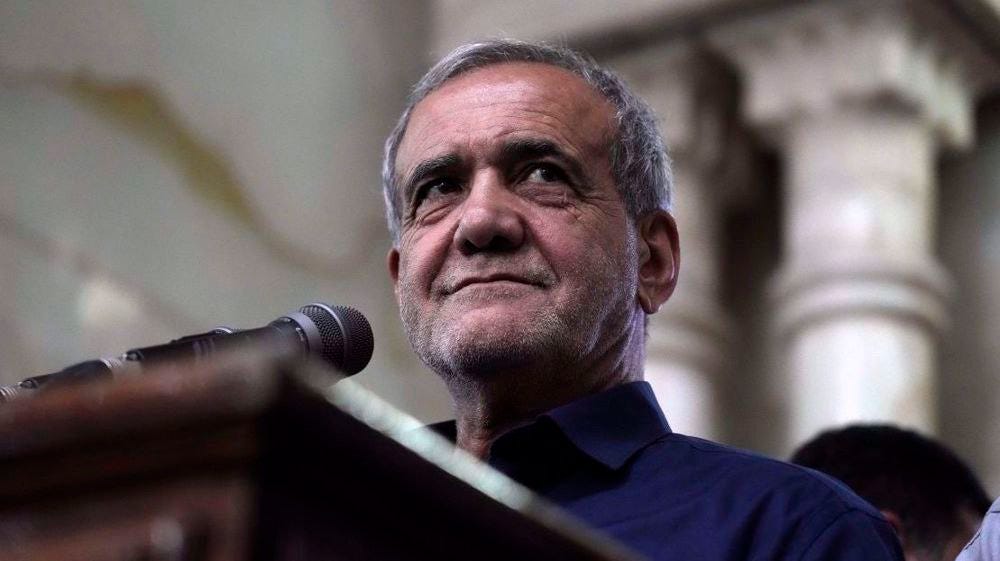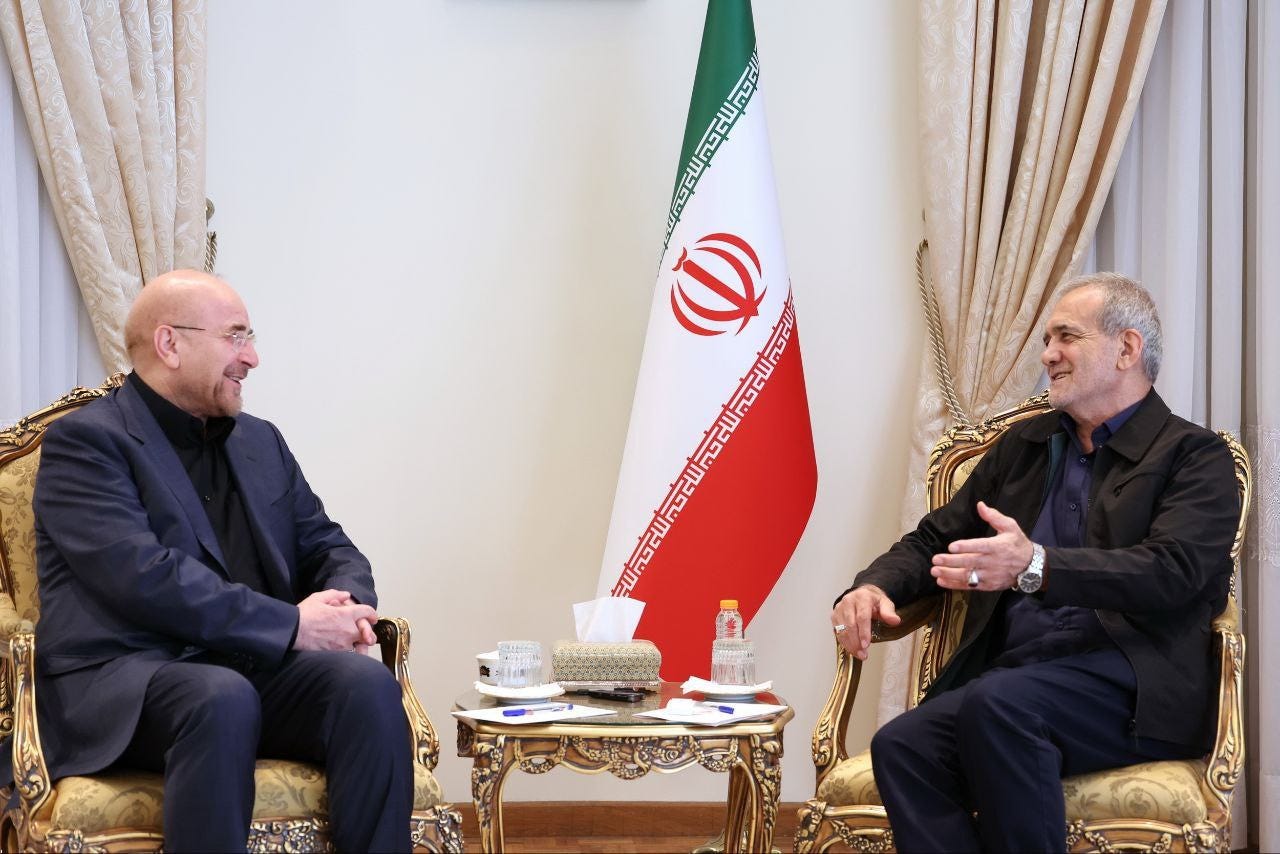Iran Elects Reformist Masoud Pezeshkian as New President
After elections in Russia, South Africa, and India, another BRICS member, Iran, held a sudden presidential election with a surprising result.
In a surprising turn of events, Iran has elected reformist candidate Masoud Pezeshkian as its ninth president since the 1979 Islamic Revolution. The former health minister secured a decisive victory in the second round of an extraordinary election, marking a potential shift in the country's political landscape.
According to Iran's election headquarters, Pezeshkian garnered 16.384 million votes, representing 53.6% of the total ballots cast. His conservative opponent, Saeed Jalili, received 13.538 million votes, or 44.3% of the total. The election saw a voter turnout of 49.8%, with 30.530 million Iranians participating in the second round of voting.
Background of the Extraordinary Election
The election was called following the unexpected death of former President Ebrahim Raisi in a helicopter crash on May 19, which also claimed the life of Foreign Minister Hossein Amir-Abdollahian. The tragedy occurred as Raisi was returning from a meeting with Azerbaijani President Ilham Aliyev, necessitating an early return to the polls for Iranian voters.
A Call for Change
Pezeshkian's victory has been interpreted by some analysts as a response to growing calls for change within Iranian society. Rajab Safarov, head of the Center for the Study of Modern Iran, told the Russian newspaper Izvestia that there was a clear "demand for change" among the Iranian populace, which was taken into account during the preparation for the snap elections.
Pezeshkian's Background and Initial Promises
The new president-elect brings a diverse background to his role. A physician by training, Pezeshkian previously served as Minister of Health from 2001 to 2005 and as Deputy Speaker of the Iranian Parliament from 2016 to 2020. He has consistently advocated for improved dialogue with Western nations and has expressed support for reviving the nuclear deal.
In his first statement following the election results, Pezeshkian promised to extend a "hand of friendship" to all and to "involve everyone in the country's development." He also referred to his electoral competitors as "brothers," signaling a potential move towards greater political inclusivity
Expectations of Change: A Reality Check
However, experts caution against expectations of radical change. Sergey Demidenko, an associate professor at the Institute of Social Sciences of the Presidential Academy, emphasized that Pezeshkian is very much "a man of the system" who has long operated within Iran's political structures. "He will follow the policy vector set since 1979," Demidenko stated, referring to the year of the Islamic Revolution.
Implications for Foreign Policy
The election of a reformist candidate has raised questions about the future direction of Iran's foreign policy, particularly its relationships with the West, Russia, and China. While Pezeshkian has expressed interest in "constructive relations" with Washington and European capitals to bring Iran out of isolation, any significant shifts are likely to be constrained by the country's complex power structures.
The Supreme Leader's Stance
Supreme Leader Ayatollah Ali Khamenei, who holds ultimate authority in Iran, has called on Pezeshkian to follow "the path of martyr [President Ebrahim] Raisi" and to "make the best use of the country's rich opportunities, especially human resources, for the well-being of the people and the progress" of Iran.
International Reactions
International reactions to Pezeshkian's victory have been swift. Russian President Vladimir Putin was among the first world leaders to offer congratulations, expressing hope that the new president's tenure would "contribute to the further building up of constructive bilateral cooperation in all areas for the benefit of our friendly peoples."
Other notable congratulatory messages came from Saudi Crown Prince Mohammed bin Salman, Chinese President Xi Jinping, Indian Prime Minister Narendra Modi, and UAE President Mohamed bin Zayed Al Nahyan. These responses suggest a cautious optimism among regional and global powers regarding potential diplomatic opportunities with the new Iranian administration.
Balancing Act in Foreign Relations
Despite the reformist victory, analysts warn against expectations of a dramatic shift in Iran's foreign policy. The president's authority in Iran is limited, particularly in matters of foreign affairs and national security, which remain under the purview of the Supreme Leader and associated institutions.
Safarov suggests that while Pezeshkian may seek to improve relations with the West, this could necessitate some distancing from Moscow and Beijing. "The first conditions that the United States may set for the new president to start a dialogue are to distance himself from Russia and China," he noted. This balancing act could potentially delay the signing of a major friendship and cooperation agreement between Russia and Iran, which had been in the works under the previous administration.
Looking Ahead
Ali Akbar Ranjbarzadeh, a lawmaker from the city of Hamedan, was reported to have said that the parliament will hold the inauguration ceremony as soon as the presidency is validated by the Leader. The world is watching this process with interest. The new president faces the challenging task of navigating Iran's complex internal power dynamics while addressing pressing economic issues and managing delicate international relationships.
hile Pezeshkian's election represents a notable shift in Iran's political landscape, the true extent of change remains to be seen. As the country enters this new chapter, the interplay between reform aspirations and the established system will likely shape the trajectory of Iranian politics in the coming years.







The new leadership in Iran will soon learn that the West has nothing to offer but money and weapons to "stay away from The BRICs" and cause instability: the mission of the Anglosphere.